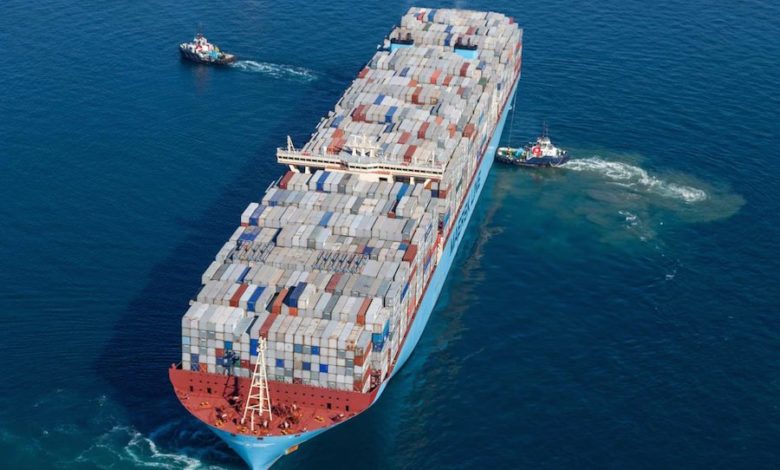Clothing giant H&M first to try on Maersk’s landmark carbon-neutral transport offering

In claiming another first for the industry today, Maersk has unveiled a carbon-neutral product using biofuel that it is now offering to select clients.
Clothing giant H&M Group is the first company to trial it as part of the shift towards carbon-neutral transportation.
The biofuel in the pilot project is the same blend of used cooking oil tested and validated in a trial driven in collaboration with the Dutch Sustainability Growth Coalition (DSGC), and Shell this year.
In March, a group of Dutch multinationals – FrieslandCampina, Heineken, Philips, DSM, Shell and Unilever – all members of the Dutch Sustainable Growth Coalition (DSGC), joined forces with Maersk on a landmark biofuel-powered voyage from Europe to China.
The pilot, using up to 20% sustainable second-generation biofuels on a large triple-E boxship, Mette Maersk, sailed 25,000 nautical miles from Rotterdam to Shanghai and back on biofuel blends alone, a world’s first at this scale, saving 1.5m kg of CO2 and 20,000 kg of sulphur.
The biofuel is certified as a sustainable fuel by the International Sustainability & Carbon Certification (ISCC) body.
“The biofuel trial on board Mette Maersk has proven that decarbonised solutions for shipping can already be utilised today, both technically and operationally. While it is not yet an absolutely final solution it is certainly part of the solution and it can serve as a transition solution to reduce CO2emissions today. With the launch of this product, Maersk seeks to help our customers with their goal of moving to sustainable supply chains,” said Søren Toft, Maersk COO.
The biofuel to be utilised is carbon neutral, helping H&M towards its stated goal of being climate positive by 2040.
The Roundtable on Sustainable Biomaterials (RSB) will provide a procedure to ensure carbon savings are accredited to Maersk customers appropriately. When taking a full lifecycle view including also all emissions from upstream production and transportation, the fuel entails savings of 85% compared to bunker fuel, Maersk stated today.
“Our high ambition to become climate positive by 2040 requires cooperation and engagement from all parties in the supply chain. We want to use our size to be a force for good and enable scaling innovative solutions, such as the carbon neutral ocean product, for a greener commercial transport,” said Helena Helmersson, COO of H&M.
“We believe this is the only commercially viable path to make the required investments our industry requires to reach the carbon neutral target. We are so pleased to see a significant shift in sentiment and involvement from customers, fuel suppliers, equipment manufacturers, and competitors towards sustainable solutions,” Toft added.
Commenting on the news, Andy Lane, a container shipping consultant based in Singapore, told Splash today, “This is excellent progress, and the trials previously conducted have demonstrated that the path to carbon-neutral shipping is not necessarily blocked by technical or operational obstacles. What is now required is a sufficient supply of clean fuels and then the 2030 targets do not appear as insurmountable as maybe initially considered.”
Maersk has already jumped ahead of its peers, vowing late last year to have decarbonised by 2050 whereas the International Maritime Organization (IMO) has set goals to slash shipping’s carbon footprint by 50% by that time compared to 2008 levels.

If there is reduction in Carbon & Sulphur emission, it’s a commendable action and needs appreciation and recognition from all. Given the size of Maersk operations , if this criteria for selection of it’s vendor and partners is used, the target may be achieved even earlier.
It is definitely a good step! But many people misunderstand carbon-neutral in a way that there are no carbon emissions at all, however, this is regularly not the case. When speaking about carbon-neutrality it should always be stated what carbon-neutral means in this specific case and whether this neutrality refers to Scope 1, 2 or 3 emissions and whether CO2 was ‘replaced’ by other GHGs.
But this should not question Maersk’s pioneering spirit. Good move!
Not good enough t though. Rail links between China and Europe are working efficiently, faster, and without the colossal CO2 emissions, be it hydro carbon based or vegetable oil based. There is a huge trend to switch from ship to rail and this trend is what the world needs.